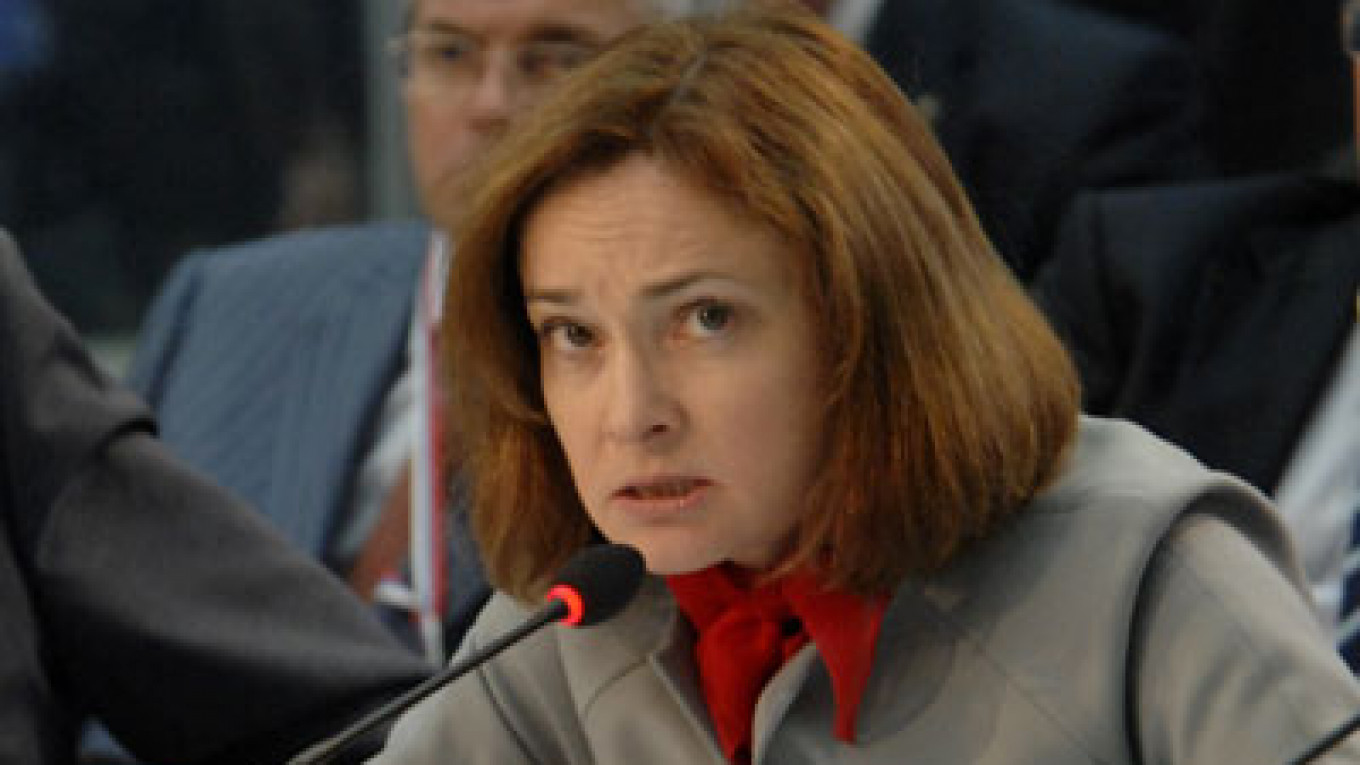"By our estimates, if the raw materials and fuel industries continue to be a dominate part of the economy like now, [and] if uncompetitive institutions and a problematic business climate remain, economic growth will rather quickly drop to 2 to 3 percent a year," Nabiullina said at a conference, Interfax reported.
She said such rates of growth would cause Russia to lose its position in the world economy and were unacceptable.
An innovation-based economy will take at least five years to establish, and the effects of such a shift would not be felt until 2018 at the earliest, Nabiullina said. She predicted an average annual growth rate of 4.4 percent through 2030 if Russia manages to break its dependence on oil.
She also said government spending on science must be increased as part of the shift, and outlays for education must rise from 5 percent of GDP to 7 percent.
Russia's economy is the ninth largest in the world by nominal value, and President-elect Vladimir Putin has called for it to be even higher on the list. The world's four largest economies are the United States,China, Japan, and Germany.
Putin spoke up for a more innovative economy in a pre-presidential election manifesto published in late January in Vedomosti. "The Russian economy is capable of not only buying, it can give birth to innovation," he wrote in the 5,000-word article.
Innovation has been a catchword of President Dmitry Medvedev as he spoke about diversifying the economy away from natural resources. But Putin, in his manifesto, criticized the development of the business climate under Medvedev
"Over the last few years on the initiative of President Medvedev we began a whole series of reforms aimed at the improvement of the business climate," Putin wrote, in his sole mention of Medvedev. "But we have not yet seen any noticeable improvements."
A Message from The Moscow Times:
Dear readers,
We are facing unprecedented challenges. Russia's Prosecutor General's Office has designated The Moscow Times as an "undesirable" organization, criminalizing our work and putting our staff at risk of prosecution. This follows our earlier unjust labeling as a "foreign agent."
These actions are direct attempts to silence independent journalism in Russia. The authorities claim our work "discredits the decisions of the Russian leadership." We see things differently: we strive to provide accurate, unbiased reporting on Russia.
We, the journalists of The Moscow Times, refuse to be silenced. But to continue our work, we need your help.
Your support, no matter how small, makes a world of difference. If you can, please support us monthly starting from just $2. It's quick to set up, and every contribution makes a significant impact.
By supporting The Moscow Times, you're defending open, independent journalism in the face of repression. Thank you for standing with us.
Remind me later.






